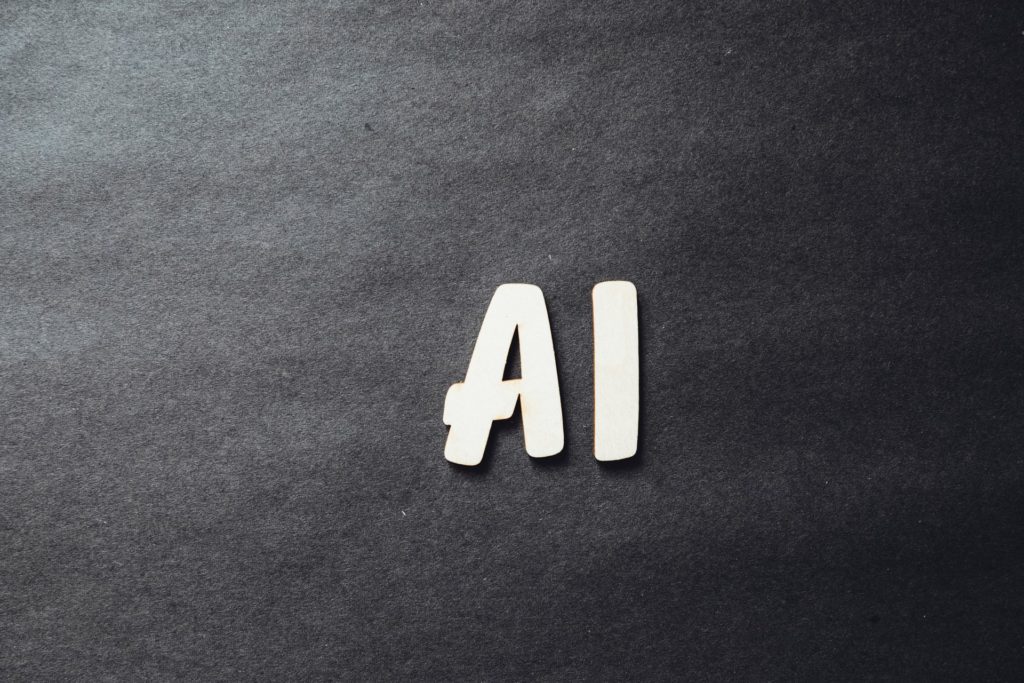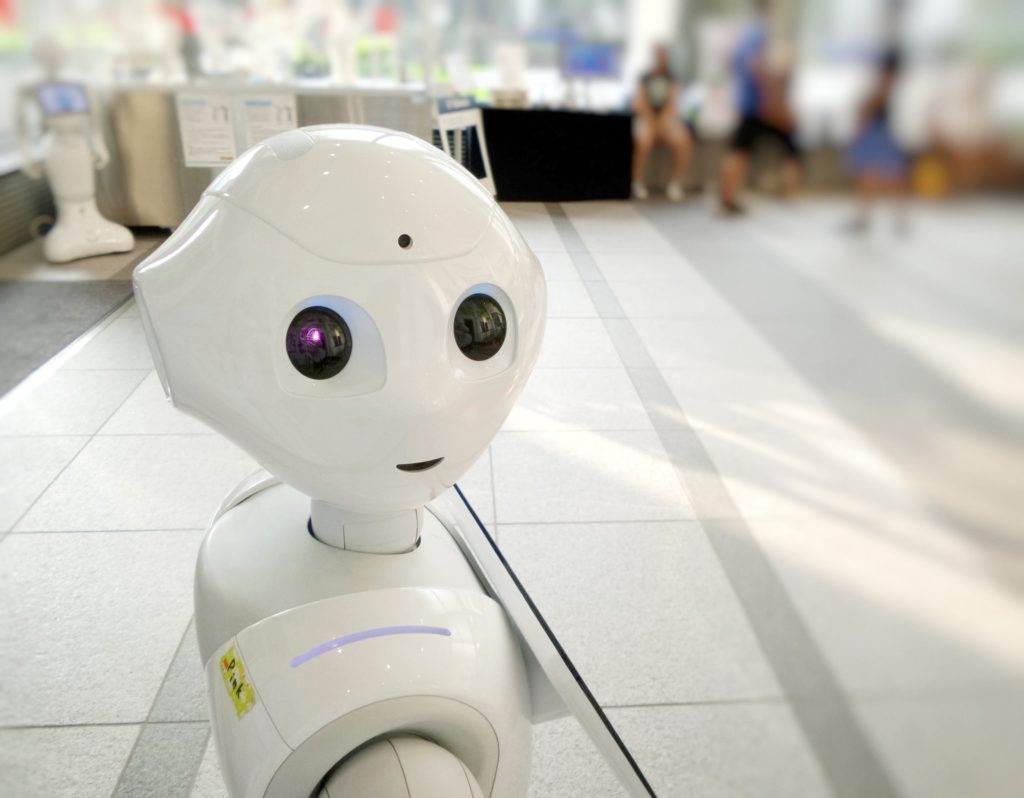How Artificial Intelligence (AI) Can Simplify Bookkeeping

As a business owner, you have a lot on your plate. You’re responsible for making sure your company is profitable and growing, and that can be a lot to handle on your own. One way to simplify things and focus on what’s essential is to automate time-consuming tasks that don’t require your attention. Artificial intelligence is perfect for automating bookkeeping tasks.
Artificial intelligence (AI) has already started to make its way into the world of accounting, and it is changing the game. AI can automate many of the traditionally done tasks by bookkeepers, such as data entry, reconciling accounts, and preparing financial statements. This can save you a lot of time and money and allow you to focus on growing your business. (1)
6 ways Artificial Intelligence (AI) is Simplifying Bookkeeping
Previous decades saw a lot of rumors and speculation about Artificial Intelligence (AI) and its potential to change the world. Accounting professionals were not bothered as they thought AI would not be able to replace human bookkeepers.
However, technology has advanced rapidly, and AI is starting to make its way into accounting and bookkeeping. Now, what was thought impossible is happening before our own eyes. AI is completely automating bookkeeping and is changing the game for businesses.
Here are six ways Artificial Intelligence (AI) is simplifying bookkeeping:
-
Data Entry
One of the most time-consuming tasks for a bookkeeper is data entry. Bookkeepers have had to record transactions in ledgers for centuries manually. This is a very tedious and error-prone task.
Data entry did not add any value to bookkeepers and accounting professionals. It was seen as a necessary evil that had to be done to maintain accurate records.
However, AI is changing this. Artificial intelligence can quickly and accurately record transactions in ledgers. This frees up bookkeepers to do more value-added work.
AI can automate this process by extracting data from invoices, receipts, and other documents using optical character recognition (OCR). Your accounting software can then import the data with just a few clicks.
A prime example here is Envoice, an AI-based data extraction tool that can quickly and easily capture data from invoices and receipts. All you need is to take a picture of the receipt or invoice, and the program will do the rest.
-
Invoice Management
The process of issuing and processing invoices can be very time-consuming. Bookkeepers must manually enter data into invoicing software and then track down late payments.

This is a process that is ripe for automation. AI can handle the entire invoice lifecycle thanks to robotic process automation from start to finish. Humans no longer need to be involved in the process.
An AI system can generate invoices, send them to customers, and track payments. It can also flag late payments and take appropriate action. This frees bookkeepers to do other tasks, such as preparing financial statements.
And the best part; businesses don’t have to print the invoices and post them. Talk about minimizing the number of papers in the office!
-
Reconciliation
Another time-consuming task for bookkeepers is reconciling accounts. This ensures that all transactions are accounted for and that there are no errors in the books.
Accuracy is essential in this process, as even a tiny error can significantly impact the financial statements. AI can help to automate this process and ensure accuracy.
AI systems can compare transactions in your accounting records with those of your bank or other financial institution. Identification of any errors thus becomes easy, and everything is pointed out so quickly. No more hold-ups when preparing financial statements!
-
Expense management
With the world becoming more interconnected, businesses incur more expenses. This is especially true for companies with employees who travel frequently.
Manually tracking and recording expenses can be very time-consuming. It is also prone to errors, as receipts can be easily lost or misplaced. It is part of why most employees will take longer to be reimbursed.
Other challenges in expense management include long, tedious, and ineffective expense report processes and employees submitting fraudulent expenses.
AI can help automate the expense management process and make it more efficient. Gone are when employees had to hunt down receipts and fill out expense reports.
All they need is the Envoice Mobile APP and simply take a picture of their receipts and submit them electronically. The program will automatically generate an expense report and connect with your accounting software like QuickBooks OR XERO. This saves time and reduces the chances of errors and fraud.
-
Document management
How many times have accounting firms been covered in a sea of papers? Artificial intelligence can help to reduce paper clutter and make document management more efficient.
AI-based document management systems can scan and digitize all your documents. Accounting and finance professionals can say goodbye to physical filing cabinets and file folders. Everything will be stored electronically, making it easy to find and retrieve documents.
Studies have shown that clutter can hurt productivity. Research also showed that employees waste over 4 hours looking for lost documents each week. (2)
An AI-based document management system can help reduce clutter and make it easier to find documents. This, in turn, will increase productivity and efficiency in the accounting department.
Envoice helps store all your documents digitally and makes it easier to find what you need when you need it. The financial data will also be more secure as the data management program is easier to control who has access.
-
Auditing
Auditing can sometimes be stressful, especially when supporting documents are missing. Fraud thus becomes a greater risk. But, thanks to AI technology, the accounting industry is experiencing unprecedented changes.
AI systems can analyze data and identify patterns that indicate fraud or errors. This helps speed up the auditing process and allows for more comprehensive audits.
With these kinds of changes, the big accounting firms and business leaders are turning to this new technology to help with auditing. Fraud is expected to go down, especially now that accounting automation has taken over the accounting processes.
Auditing thus becomes a relatively straightforward process with not much room for errors. (3)
Can AI replace bookkeepers?

There have been a few jitters in the accounting industry as Artificial Intelligence (AI) grows in leaps and bounds. Many are now wondering if AI will eventually replace human bookkeepers.
The short answer is: not anytime soon.
Artificial intelligence in accounting is doing mundane tasks such as data entry, transaction matching, and invoice processing. But there are still many tasks that require the human touch.
For instance, reconciling accounts is still best done by humans. This is because it requires critical thinking and an in-depth understanding of the business. AI systems are not able to do this yet.
Tax preparation is another task that humans best do. This is because tax laws are constantly changing, and it requires creative thinking to come up with the best tax strategy for a business.
Businesses will still need human bookkeepers for the foreseeable future. However, AI can help automate many of the tasks that bookkeepers do daily. The whole industry is changing and as AI tools continue to develop, we all need to change with it.
But that doe not mean that we should all be afraid of this new technology. Artificial intelligence is here to stay, and it’s time that we all embrace it. After all, it can help make our jobs easier and help businesses grow.
The best thing that any accounting profession can do is stay ahead of the curve and keep up with the latest trends. Artificial intelligence is one trend that you cannot afford to ignore.
[Related Post: Will Accountants Be Replaced by AI and Accountants Become Obsolete?]
How artificial intelligence in accounting can help steer businesses to growth
Artificial Intelligence (AI) is changing the accounting landscape. It has already simplified many tasks such as manual data entry, transaction matching, bank reconciliation, and invoice processing.
The time it takes to complete these repetitive tasks has been drastically reduced, giving accounting professionals more time to focus on strategic tasks to help businesses grow.
In addition, AI tools can also help with auditing and tax preparation. With these changes, it’s no wonder that many businesses are turning to AI to help them with their accounting needs.

Here are the main ways businesses stand to benefit;
-
Increased accuracy
With AI, businesses can expect increased accuracy in their financial reporting. This is because AI systems can identify patterns and errors that humans might miss.
This is especially important for large businesses with complex financial data. With AI, they can ensure that their financial statements are accurate and up-to-date. Where human accountants might take days or weeks to complete the task, AI can do it in a fraction of the time.
-
Improved decision making
The business environment is constantly changing, and businesses need to be able to adapt quickly. AI can help by providing real-time insights into a business’s financial data.
We can use this information to make better decisions about where to invest, cut costs, and when to enter new markets. Data analytics is so refined that it can even predict future trends.
-
Faster growth
With the help of AI, businesses can grow faster and be more profitable. This is because AI frees up time previously spent on repetitive tasks.
Now, accounting professionals can focus on strategic tasks to help businesses expand into new markets and develop new products. In addition, companies can use AI to automate their marketing and sales processes.
Markets that seemed far out of reach are within touching distance. And with machine learning, businesses can continue to grow and evolve without the need for human intervention.
-
Cost-saving
The overall cost of running a business is always a concern. With AI, companies can save money in several ways.
First, they can reduce the need for human resources by automating tasks. This includes things like data entry, transaction matching, and invoicing.
In addition, businesses can also save on costs related to office space and hardware. AI systems can be run on the cloud, which is much cheaper than maintaining a physical office. Since the cost of papers and pens is also eliminated, there is a further reduction in office expenses.
And finally, businesses can save on training costs. Companies don’t need to train their employees to use new software or accounting principles with AI. The AI system can do all of that for them.
But doesn’t AI come with its costs?
Yes, AI systems come with their own set of costs. But these costs are often offset by the savings that businesses make in other areas.
In addition, the benefits of AI often outweigh the costs. The increased accuracy, improved decision-making, and faster growth that businesses experience with AI make it a worthwhile investment. The monthly subscription that comes with programs like Envoice is usually low and does not impact a firm’s bottom line.
Article Sources:
(1) https://www.accountingtoday.com
STAY ALWAYS TUNED
Subscribe to newsletter
Still not sure?
- Don’t spend time on manual work
- Streamline bookkeeping processes with AI
- Automate invoice processing
- Integrate with the tools you rely on every day












